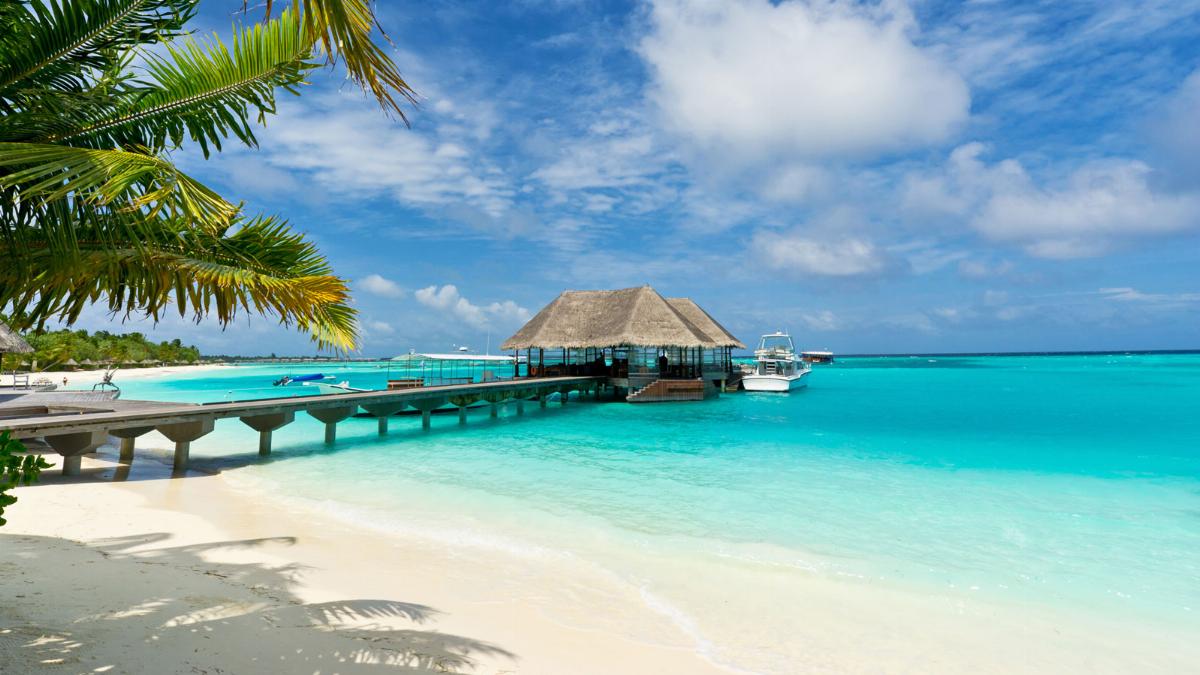
Maldives
The Maldives, an island nation located in the Indian Ocean, southwest of Sri Lanka and India, is composed of 26 atolls with over 1,000 coral islands. It is renowned for its white sandy beaches, crystal-clear waters, and vibrant marine life, making it a popular tourist destination. The nation's capital is Malé, one of the most densely populated cities in the world. The Maldives has a population of approximately 530,000 people, with the official language being Dhivehi and Islam as the state religion.
The Maldives' economy is largely dependent on tourism, which accounts for a significant portion of the country's GDP. Visitors are drawn to its luxury resorts, water sports, and world-class diving spots. Fishing is another major industry, with tuna being the main export product. Agriculture is limited due to the country's geographical makeup, which consists of small, low-lying islands vulnerable to rising sea levels. Climate change poses a significant threat to the Maldives, as much of the land lies just a few meters above sea level.
The Maldives gained independence from the United Kingdom in 1965 and became a republic in 1968. The political landscape has experienced shifts between democratic and autocratic governance. In recent years, the country has focused on developing sustainable tourism and infrastructure projects while addressing environmental challenges. Efforts to preserve coral reefs and marine ecosystems have been prioritized to protect the natural beauty that sustains the economy.
Stichworte







